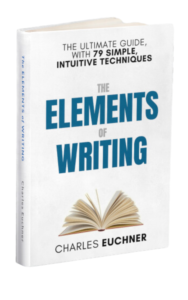As the script doctor steps off the stage, a look at his impact and storytelling lessons
Years ago, when I was transitioning from academic life to nonfiction narrative writing, I attended Robert McKee’s immersive Story Seminar. For three days, I sat in a New York theater for a complete course from one of Hollywood’s leading experts on narrative for the page, stage, and screen.
I felt like I was in that famous scene in Adaptation:
Brian Cox, the brilliant British theater actor who was the malevolent Logan Roy on Succession, played the McKee role to perfection. Stalking on stage, Cox/McKee barked out commandments for storytelling and dismissed the lily-livered comments of pretenders who do not want to work hard to construct a good story. His massive brows furrowing or rising to signal anger or glee, he teased, charmed, and berated the audience. He prompted the audience to agree with his takes on movies and literature. “Who thinks, as I do, that…” he would say. A forest of hands would rise.
Some view McKee’s performance as an ego trip, and it’s obvious McKee has a strong ego–at least in the sense of knowing who he is and what his mission and standards are. He knew what he wanted to teach and did not want to be distracted or deterred. He did not want to pal around with seminar participants. Many attempted to follow him at lunch and accidentally-on-purpose bump into him and ask a question. He would have nothing to do with it.
His standoffishness was one part self-preservation and one part lesson: I can show you what to do, but you have to put your goddamned ass on the chair and do the goddamned work yourself.
McKee started teaching storytelling after the release of his TV miniseries Abraham (1993). He realized, he said, that he could never be a great screenwriter–but he could become a great storytelling teacher.
Last year, Robert McKee performed the last of 400-plus of these marathon seminars. At 82, he has decided retire from his role as the Socrates of the Screen. But “retire” is not a word anyone uses to describe McKee, and he will stay plenty busy. For years, Story (1997) was the only way most people could learn McKee’s approach to create narrative. But in recent years he has produced four followup works: Dialogue (2016), Character (2021), Action (2022), and Storynomics (2018). He is now writing a new version of Story, which he calls Story II. (May it be a worthy sequel, more like The Godfather Part II than Return to the Blue Lagoon). McKee is determined to share all the tricks and wisdom he gained in a lifetime of writing and teaching. Obviously, his seminars and books overlap. But he has also expanded and deepened his core insights.
A few imperatives of storytelling
So what must the storyteller do? So what does McKee want us to know about storytelling? Here are some of the pieces of his wisdom that I have found most useful over the years:
• Forge character in the furnace of desire, conflict, and obsession: Nothing happens without a character’s passionate desire. That desire leads to action, with causes conflict, which tests everyone. Whoever emerges from the conflict more whole can be called heroic, even if they lose. Therefore, force the character to make hard choices–and make the choices harder as the story proceeds. Don’t give a character the choice between good and bad; make it good against a competing good or a competing bad. Make every choice involve loss.
• Create two great desires, one external and the other internal: People begin their quest with an simple, obvious, superficial desire: “I want to protect my family” (The Godfather) or “I want to rescue my son” (Missing) or “I want to get out of here” (Groundhog Day). As they encounter more obstacles, they deepen their understanding of what they want: “I want total control” or “I want to expose the truth about the Chilean coup” or “I want to be worthy of love.” By the end, they discover that their internal desire is the real point of it all.
• The point of action: Action is essential but only matters if it makes a difference in the story. If you have a great “action” scene but it changes nothing, it’s not worth keeping. Even the most exciting fight or car chase will drag down a story if it does not propel the story forward. By the same token, even the most mundane moments provide action if they make a difference and raise the stakes.
On the last day of the Story Seminar I took, McKee played and analyzed Casablanca, scene by scene. The highlight was his breakdown of the bazaar scene with Rick and Ilsa. Every line of dialogue is action: Every line changes the trajectory of the story and our understanding of these iconic characters.
• Alternate positive and negative beats: Audiences want change–or the possibility of change–at every level and at every step of the way. Make even the small actions (like a nod, an averted glance, or a soft-spoken word) matter. That’s what McKee calls a beat. Then alternate positive and negative beats. If a positive moment occurs, counter with something negative, then positive, then negative, and so on.
In a sense, action is a form of dialogue. Each act says something and forces others to respond.
• Make dialogue sound human (but better): Capture character with the way people talk: brave or cowardly, certain or confused, risk-taking or cautious, quick witted or slow, jocular or stiff, and so on. But remember that most people speak like fractured, conflicted, uncertain, and inarticulate beings. Find the sweet spot between realism and art. The goal is not mimicking reality but (to use McKee’s term) “enhanced expressivity.”
Also, remember that speech is a form of action. “Life is dialogue, action/reaction,” McKee says. But don’t use dialogue when you can tell the story in other ways. “When the screenplay has been written and the dialogue has been added, we’re ready to shoot,” Alfred Hitchcock said. First create the scenes, then the action, and finally the words.
Whatever you do, don’t “write on the nose,” using dialogue to provide backstory, which murders subtext and irony and treats the audience like a bunch of dummies who can’t add 2 plus 2. Avoid this kind of fake dialogue/exposition: “Yeah! I remember you! You sat in the last row of Mr. Leonard’s class! He was such a demanding teacher! And we just wanted to goof off!”
• Hit ’em again–harder: However much your hero suffers, make him suffer even more. Escalate the abuse, even if it’s just kidding/not-kidding taunts from friends. Giving your characters a hard time tests them, reveals them, and gives them an opportunity to respond and grow. “Pressure is essential,” McKee says. “Choices made when nothing is at risk mean little.”
“The more powerful and complex the forces of antagonism opposing the character, the more completely realized character and story must become.”
• Don’t say anything at face value: Everyone lies–like, all the time. No story should gather a group of good-spirited, accommodating truth-tellers. It’s fake and boring. Even honest people speak honestly in an oblique way. Even blunt statements of truth are oftentimes covers for something else. So make sure that dialogue contains two levels of truth: first the surface-level meaning of the statements, then the hidden misunderstandings and agendas of the speakers.
This, dear English majors, is where we find the all-important element of irony: The man-of-the-people radio star (A Face in the Crowd), the shy and skinny kid who knocks the block off the bully (Back to the Future), the legal secretary who learns tenacity she needs to fight polluters by managing life as a single mom (Erin Brockovich).
• Don’t mess with genre: Readers need to know what the story offers. Genre offers a wide but limited range of eternal tales, each one tapping something fundamental about the human condition. A genre, like a brand, is a promise: Read/watch this story and you’ll get the elements you’re expecting.
Genres also help us to get the story sizzling right away: “We don’t want people coming to our work cold and vague, not knowing what to expect, forcing us to spend the first 20 minutes of screentime clueing them toward the necessary story attitude.”
McKee lists 25 genres; that’s too many, I think. Mockumentary, for example, is not a genre but a way of presenting a story; a mockumentary can be a tragedy or comedy or Bildungsroman or any number of other distinct genres. Still, McKee’s list is useful for devising the right style of story.
• Pursue unity and truth: Ever the Aristotelian, McKee insists that all stories must reach closure by the end. As Aristotle says in The Poetics, the story should be “complete, and whole, and of a certain magnitude.” The story and the fates of the characters should wrap up, even if they lose their quest. The ending should feel like a surprise, but it should also feel inevitable.
Of course Michael was destined to be a ruthless mob boss. Of course Rick would embrace patriotism and love over possession of Ilsa. Of course Macbeth would lose his kingdom. Of course Ed discovers the corruption and complicity that led to his son’s death during Chile’s coup.
To some, these rules of storytelling feel contrived, almost like a paint-by-numbers approach. But as in any other creative, skilled work–carpentry, sculpture, dance, architecture–the rules provide the grounding needed to work creatively. The rules prompt the writer to struggle through a raw, deep, agonizing, contradictory, and hard journey.
The Ultimate Hack: Do the Hard Work
The reason storytelling will never die, even with AI, is that it requires real imagination and struggle. The human experience is not an algorithm.
We have to do the work ourselves. Lots of people write “content” for “media outlets” and “clients.” Lots of people write “books” to promote their “brand.” But how many of them are willing to dig deep and work hard enough to produce a worthy story?
In a sense, McKee’s core message was that writing a story is a lot like being a hero in a story. It’s about having a goal and a determination to meet that goal. It’s about delusion, failure, denial, blindness, and laziness–and working hard to overcome these universal flaws to create something worthwhile.
The greatest challenge, then, is to find something worth saying. In a valedictory profile in The New Yorker, McKee tells Dana Goodyear: “The problem with Hollywood is, they’ve all read the book, they’ve all been to these lectures. They know how to tell a story, but they don’t have anything to say.”
In Adaptation, McKee tells Charlie Kaufman, played by Nick Cage: “Your characters must change. The change must come from them.” He’s telling Charlie that the writer has to do as much hard work as the characters. No formula or shortcuts for anyone.


